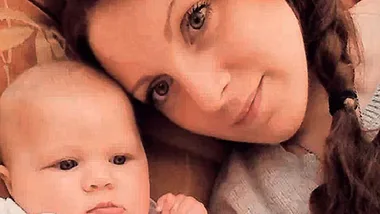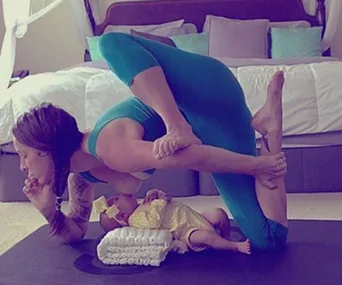Breastfeeding older children is one of those trigger topics.
While, anecdotally at least, their seems to be more support for mums who want to breastfeed up to the recommended World Health Organisation age of two years, when kids get older than that, people start to get weirded out again.
Sophie Emma Rose, a British mum who lives in Thailand with her partner Danny and four-year-old son Shaye, has a very successful YouTube channel dedicated to normalising the breastfeeding of older children. Called Sophie’s Joy Breastfeeding Mama, it has amassed more than eight million views.
The 40-year-old is committed to raising Shaye along attachment parenting lines which includes extended breastfeeding on demand, co-sleeping and home schooling. Her family is also a vegan. She talks openly about all of this on her YouTube channel, but breastfeeding older children is what’s she’s really promoting.
Sophie said she wanted to “expose (breastfeeding older children) until it becomes part of normal reality”. She knows about the criticism extended breastfeeding can engender, in fact she and Danny have a whole video directed directly at the haters that have attacked her channel.
“I want other mothers to feel confident about feeding older children,” she said.
“I also want mothers to not feel shame and to feel they could do it wherever they want and have no negative comments or fear.
“Breastfeeding older children is so important. As well as the nutritional value of breast milk, you also let your child know in a very physical way that you are there for them. It’s about the comfort and emotional connection.
“When I look at some of the negative comments on my channel, I’m amazed that some people still feel strongly about how wrong it is to breastfeed a child and share that over YouTube.
“But I’m going to continue uploading videos.”
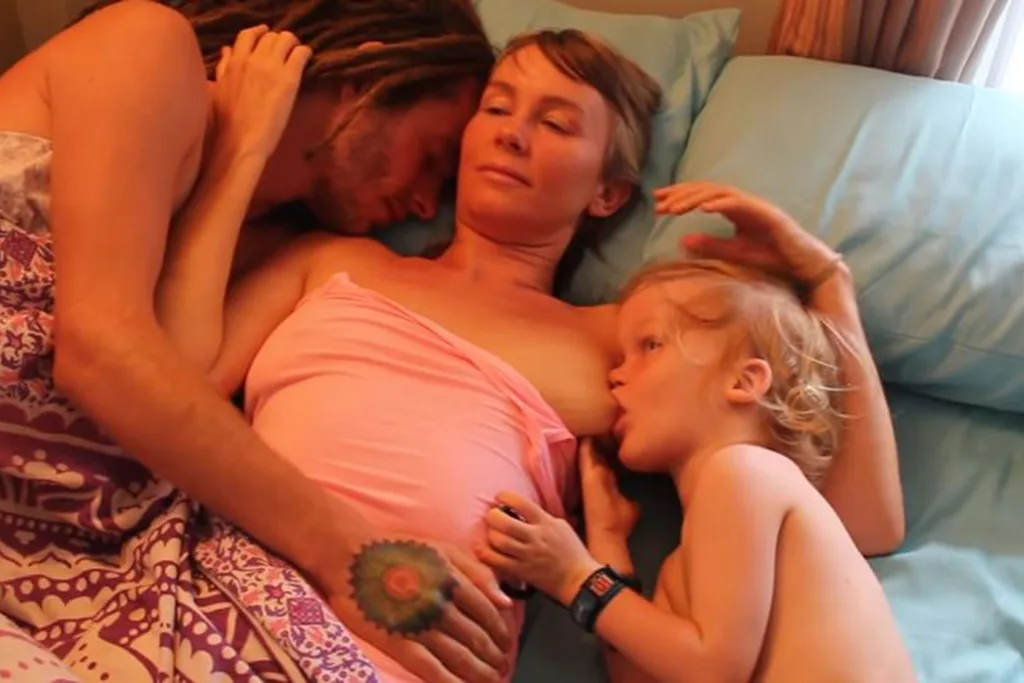
Sophie, her partner Danny, and Shaye co-sleep. PHOTO: YouTube
She has reassured people worried that Shaye may never stopping breastfeeding.
“I’ll breastfeed Shaye for as long as he wants it – that is the goal,” she said.
“I know that breastfeeding does end – children eventually lose the latch and are not physically able to breastfeed past the age of about seven or eight years old.
“I have no fears that I’m going to be feeding Shaye at 18 years old when he’s at university!”
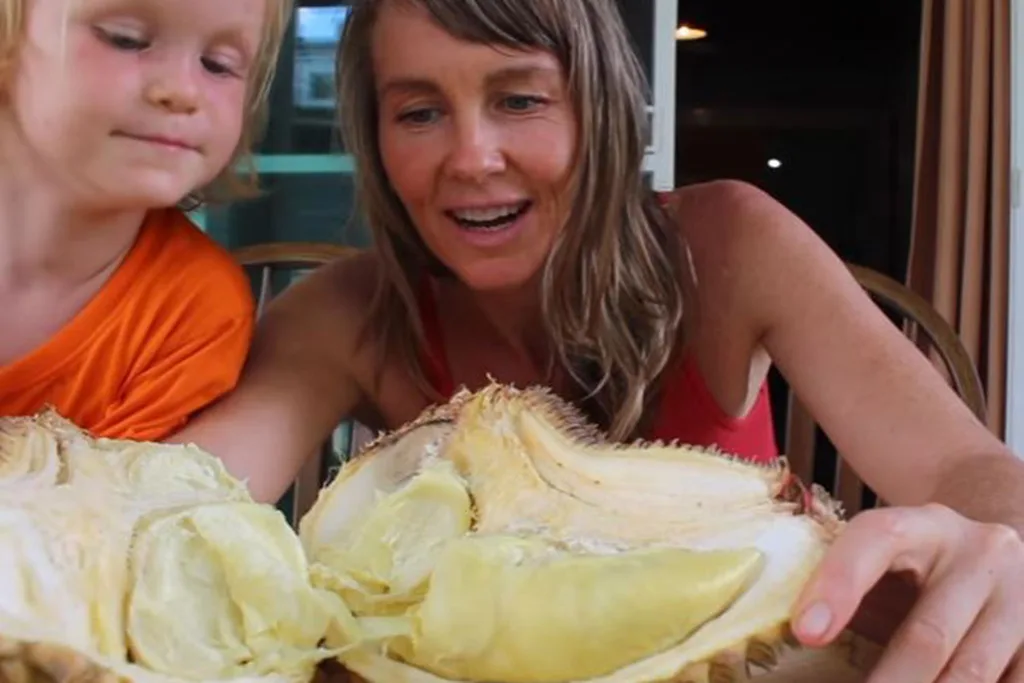
PHOTO: YouTube
Are there benefits of extended breastfeeding beyond the age of 12 months
For a topic that creates such heated debate, it’s surprising how little research has been down on the benefits, or lack of, of breastfeeding toddlers and pre-schoolers.
Research from 2001 highlights the ongoing nutritional benefits of breastfeeding after the age of one, breaking it down like this:
448 ml of breastmilk provides:
29% of energy requirements
43% of protein requirements
36% of calcium requirements
75% of vitamin A requirements
76% of folate requirements
94% of vitamin B12 requirements
60% of vitamin C requirements
Other research, again, not that new, suggests children who are continued to be breastfed between the ages of 12 and 36 months have fewer illnesses, illnesses of shorter duration, and lower mortality rates .
The WHO itself says “a modest increase in breastfeeding rates could prevent up to 10 per cent of all deaths of children under five. Breastfeeding plays an essential and sometimes underestimated role in the treatment and prevention of childhood illness.”
A Brazilian study that followed 6000 babies from all backgrounds since 1982 found that those who breastfed were more intelligent, spent longer in education and earned more. And the longer they were breastfed as a baby, the better they tended to be doing.
And there is evidence from other studies of the nutritional value of mother’s milk, rich in long-chain polyunsaturated fatty acids that are essential for brain growth.
Added to all that, there are also many health benefits for mum with research suggesting it lowers the risk of several cancers including breast, ovarian and uterine and can protect against osteoporosis and cardiovascular disease.
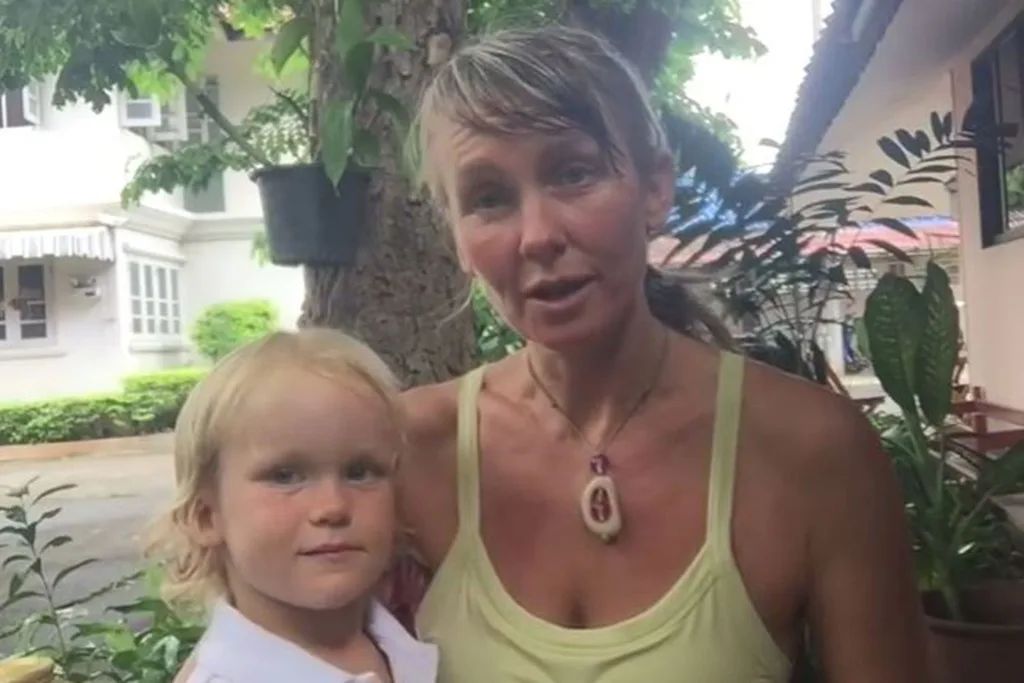
PHOTO: YouTube
In the end how long a woman breastfeeds is up to her – or how her body responds.
What Sophie in Thailand seems to be saying is that while women who don’t breastfeed seem to get support, those who want to breastfeed up to the preschool years and beyond do not – in fact, they are targeted by quite a lot of hate and revulsion. And she wants to change that.

